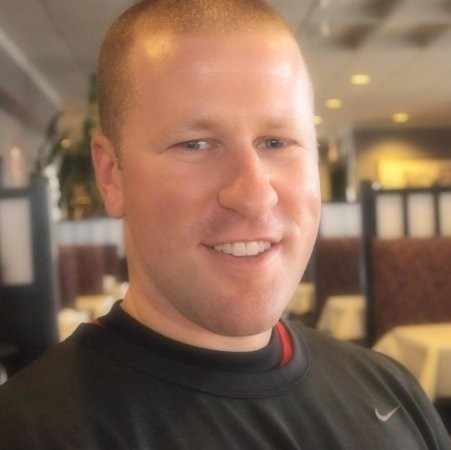
By STEVE KRAH
Structure. Expectations. Accountability.
Those are things Bobby Segal plans to make a priority as the new head baseball coach at Gibson Southern High School in Fort Branch, Ind.
“Coaching staff and players will be held to a high standard both on and off of the field,” says Segal, whose hiring came in October 2023. “We represent a great community that supports great educational opportunities and extracurricular activities.
“The accumulation of great days with discipline and focus will determine how successful this program can become.”
Gibson Southern (enrollment around 775) is a member of the Pocket Athletic Conference (with Boonville, Forest Park, Heritage Hills, Mt. Vernon, North Posey, Pike Central, Princeton Community, Southridge, South Spencer, Tecumseh, Tell City and Washington).
The Titans are part of an IHSAA Class 3A sectional grouping in 2024 with Boonville, Evansville Bosse, Evansville Memorial. Mt. Vernon and Princeton Community. Gibson Southern has won nine sectional titles — the last in 2014.
“With the size of school and the amount of athletes that compete on other teams, we started baseball-related and weight training workouts in December,” says Segal, who is just the third head coach in program history after Jim Reid and Chris May. “The emphasis was to have a detailed plan of work that would help our players in their skill development by position, and to prepare for upcoming game situations.”
Segal is a 2002 graduate of North Central High School in Indianapolis where he played for Rick Shadiow and Indiana University where he played three seasons for Bob Morgan (2003) and one for Tracy Smith (2004-06).
A catcher, Segal helped IU qualify for the 2003 Big Ten Conference tournament and was and letterwinner and academic all-Big Ten 2004-06.
After his playing career, Segal embarked on a career as a baseball coach and instructor.
Most recently, Segal was hitting coach for the independent professional Frontier League’s Evansville (Ind.) Otters (2016-23). He was the FL Coach of the Year in 2017.
The owner of more than 800 wins as a manager and assistant coach, Segal won two league championships and one league runner-up as hitting coach with the independent pro Gary SouthShore RailCats.
Segal has been part of seven playoff series and had more than 30 players signed by Major League Baseball organizations.
Collegiately, Segal has served on staffs at Butler, Tarleton State (Texas), Wabash Valley College, Iowa Western and Union (Kentucky). He was a part of seven nationally-ranked squads and has made both a World Series appearance in both the National Junior College Athletic Association (NJCAA) and National Association of Intercollegiate Athletics (NAIA).
In his nine seasons as a collegiate coach, more 70 players went on sign pro contracts.
Segal was the head coach for the summer collegiate North Adams (Mass.) SteepleCats in 2010 and Terre Haute (Ind.) Rex in 2015. With the SteepCats, he managed in the New England Collegiate Baseball League All-Star Game, The Rex won the Prospect League and Segal was named PL Manager of the Year.
In 2007, Segal was a baseball operations intern with the Cincinnati Reds, preparing advanced scouting reports and providing support to the Director of Scouting Administration.
Segal has also been an instructor at Britton’s Bullpen in Boonville, Ind.
“I was very fortunate to have played for and coached with many highly-motivated, positive individuals that had a true passion for the game,” says Segal. “The key is to pull certain nuggets from all of those you come in contact with, so that you can continue to grow and share in the industry.”
At Gibson Southern, Segal’s coaching staff will include May, Zach Pullum, Reed Farmer, Chris Wilkerson and Axel Freudenberg.
May, a former Indiana State University-Evansville (now University of Southern Indiana) infielder, was Titans head coach the past 16 seasons.
Pullum, an Indiana State University graduate, enters his seventh season at Gibson Southern. He is Director of Baseball Operations and bullpen coach for the Titans as well as an IT Computer Support Specialist for the school.
Farmer, an Oakland City University alum, is going into his fourth season of coaching high school baseball.
Wilkerson is also going into his seventh campaign at Gibson Southern.
Freudenberg, another OCU graduate, is heading into his third season.
Titan Baseball Field, located on-campus, has natural grass. Dimensions are 309 feet down the left field line, 370 to center and 305 to right.
Feeder system includes the Fort Branch, Haubstadt and Owensville youth baseball programs. Local travel teams in Gibson County include South Gibson Heat and Southern Smoke.
Recent Gibson Southern graduates to move on to college baseball include the Class of 2022’s Justin Stimpson (Rend Lake), Oliver Hamilton (Oakland City), Kaden Hurless (Oakland City) and Colton Okes (Wabash Valley) and 2023’s Garrett Reid (Post Grad Sports in Scottsdale, Ariz.) and Adam Thompson (Asbury).
Segal says no one on the current roster is committed, but there are players who are interested in taking that path.
Bobby and wife Rachel Segal live in Fort Branch with children Asher, Jacob and Lillian.
Bobby Segal, who has a Master of Education degree from Union College in Barbourville, Ky., is to being teaching at Gibson Southern in the fall of 2024.

















